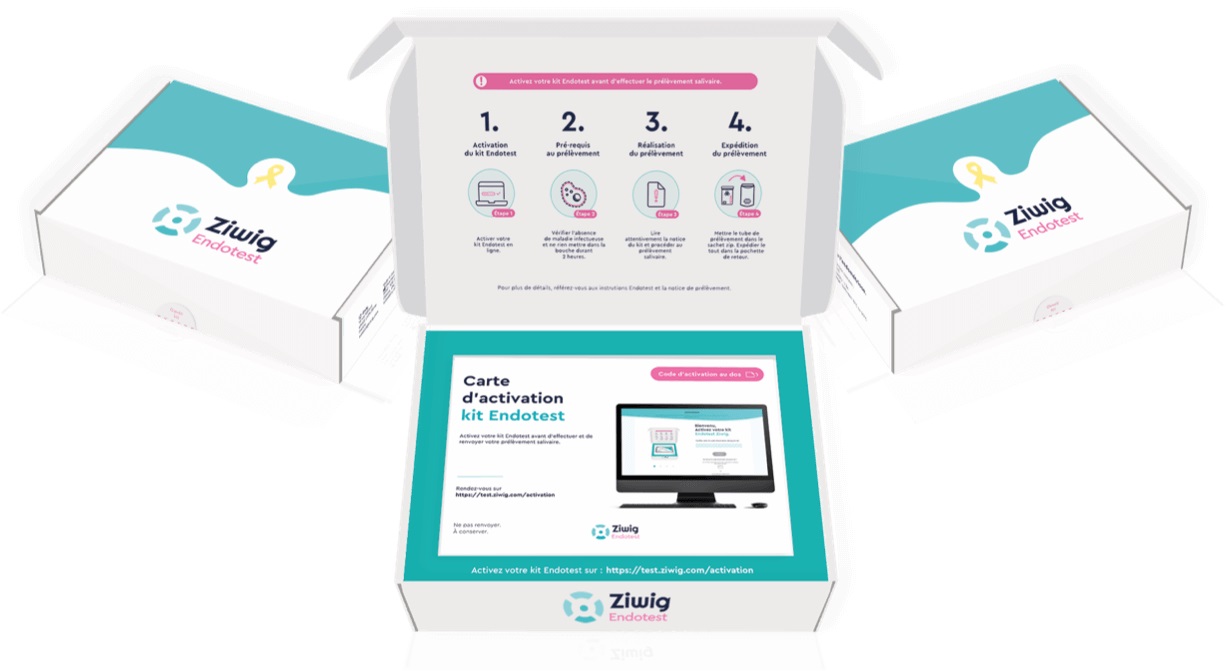
Technologies to track your menstrual cycle or diagnose endometriosis: “femtech”, these companies dedicated to women’s health, are emerging and responding to needs that have not yet been or insufficiently taken into account.
In Lille, the company Lattice Medical is working on breast reconstruction for women who have had their breasts removed because of cancer. To this end, the start-up, founded in 2017, has developed an implant that regenerates the patient’s fatty tissue.
“We offer an alternative to the silicone implant: a 3D-printed implant, which uses a fully absorbable biomaterial”explains Julien Payen, co-founder of the company, which expects a clinical trial by the end of the year.
This is one of the solutions offered by the emerging femtech market, which is a portmanteau of “feminine” and “technology”. The term, rather a catch-all, encompasses companies that have developed technologies intended to improve women’s health and well-being.
These can be, for example, diagnostic aids, in particular for endometriosis. The start-up Ziwig, co-founded and chaired by entrepreneur Yahya El Mir, has developed a saliva test that, she says, can detect all forms of endometriosis early, in women who often wander medically.
This test is based on high-throughput sequencing technology and uses artificial intelligence. Ziwig has also set up a follow-up platform for patients. “We are in talks with health authorities in France”says Yahya El Mir, who recognizes “Raising public awareness through the work of patient associations”†
The menstrual cycle is also the subject of new applications, intended, for example, to determine the moment of ovulation. Without forgetting postpartum solutions.
The Strasbourg start-up Fizimed has developed a perineal rehabilitation probe, linked to a mobile application, with which every woman can do her exercises. “at home, in complete privacy, with a playful aspect to stimulate motivation”, explains Emeline Hahn, the founder of this young company. This probe, which is already on the market, is reimbursed even in Germany.
vagina, uterus… underused words
The emergence of these societies marks a shift in mentality and brings to light issues that have been neglected until recently: the specifics of women’s health. “It’s a movement that’s getting underway, there’s a shift going on on this subject. We talked more about prostate cancer than endometriosis”analyzes Chahra Louafi, investment director specialized in health for Bpifrance. “The speech has been released. †
The market would represent $50 billion by 2024, according to the American Frost & Sullivan. In reality, if estimates vary, this sector potentially affects half of humanity. For his part, Julien Payen is optimistic: “There are more and more projects quality in this sector » which attracts more and more investors, he believes.
But there is still a long way to go, the entrepreneurs acknowledge. “Femtech uses words that are not commonly used, such as vagina, uterus. But not everyone goes at the same speed., notes Emeline Hahn. On online sales platforms in the United States, “Some Pelvic Rehabilitation Devices Are Considered ‘Adult Products'”she also regrets. Or when health products are transformed into dildos by the algorithms of internet giants…
“There is still a lot to do”galore Yahya El Mir, noting that investors “Usually go for classical pathologies that require a lot of investment. There are few actors about women’s health”† A question of money, but not only, he judges. “Financing is an important element, but these questions must be a social project. †
(AFP)